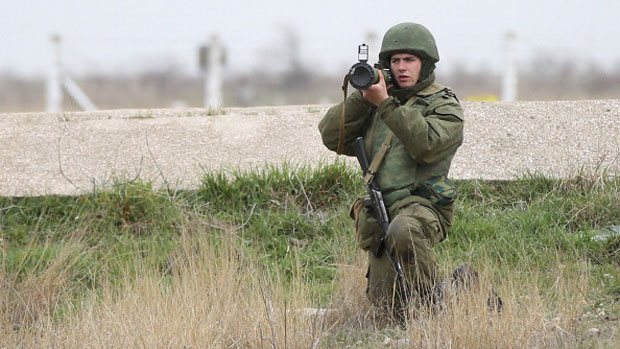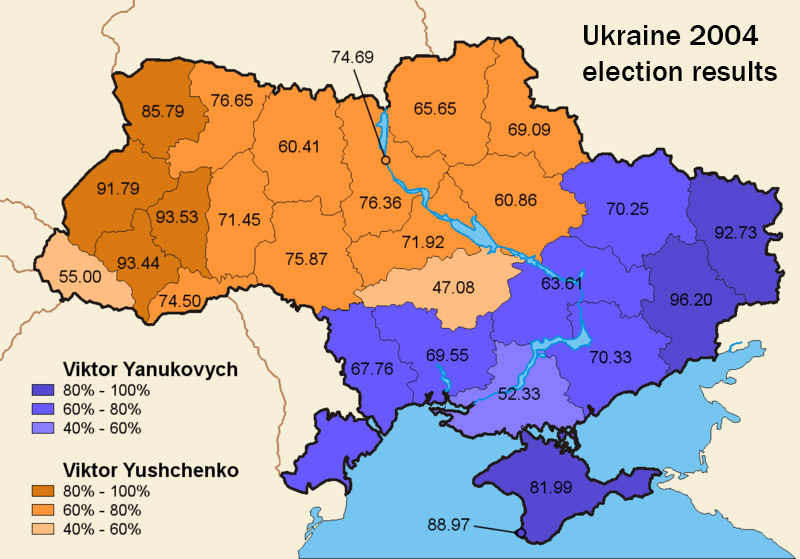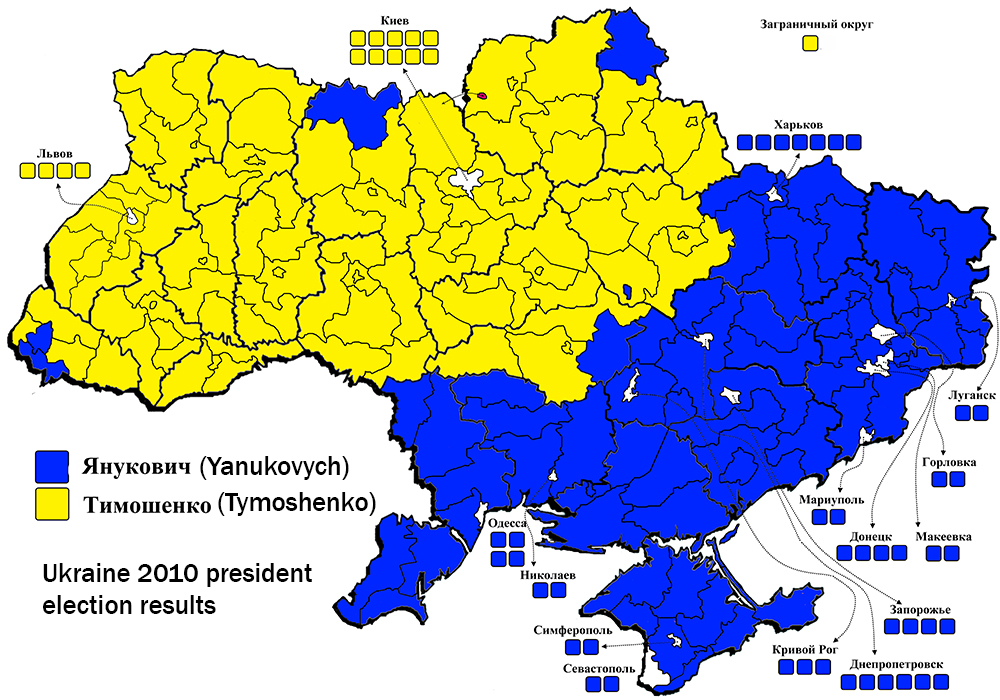Why partitioning Ukraine may keep the peace
Some analysts argue that the best way out of the crisis would be to split Ukraine between east and west

A free daily email with the biggest news stories of the day – and the best features from TheWeek.com
You are now subscribed
Your newsletter sign-up was successful
AS RUSSIAN president Vladimir Putin today pledged to use "all means" to protect Russian citizens in the east of Ukraine, the search for a non-military solution gained urgency.
Over the past week, Russian troops have occupied airports and surrounded Ukrainian military facilities in the Crimea region of Ukraine, where there is an ethnic Russian majority.
US and European officials insist that Russia should pull out of Crimea immediately; Russia claims it has a right to "defend" the region; and Ukraine has ordered a nationwide mobilisation of troops of in anticipation of combat.
The Week
Escape your echo chamber. Get the facts behind the news, plus analysis from multiple perspectives.

Sign up for The Week's Free Newsletters
From our morning news briefing to a weekly Good News Newsletter, get the best of The Week delivered directly to your inbox.
From our morning news briefing to a weekly Good News Newsletter, get the best of The Week delivered directly to your inbox.
With the threat of war a real possibility, some experts now argue that the only workable solution is to partition Ukraine, dividing the country between its pro-Russian east and its European-leaning west.
The case for partition
Daniel Hannan, writing in the Daily Telegraph, argues that separation is beginning to look "inevitable". That separation may come about in two possible ways: either through "paramilitary groups establishing local supremacy" or as a result of Russian intervention.
"If a partition is coming anyway," Hannan says, "might it not be better to take ownership of the process: to see that the border is decided peacefully and by referendum rather than by military occupation?"
A free daily email with the biggest news stories of the day – and the best features from TheWeek.com
If an agreement on partition can come without a war, it may be possible to avoid "another frozen conflict in which families are separated and the economy is wrecked," Hannan argues.
Where will the partition lie?
A number of commentators – including Max Fisher in the Washington Post – point to two maps that express the intimate relationship between ethnic and linguistic identity and political affiliation in Ukraine. The east of the country identifies as Russian-speaking and voted overwhelmingly for the pro-Russian Yanukovych in the 2010 presidential election. The western part of the country meanwhile, which is largely Ukrainian-speaking, voted for the comparatively pro-European Yulia Tymoshenko.


According to Fisher, the unrest in Ukraine is "a function of [this] demographic divide that Ukrainian politics have never really bridged".
Writing for TheWeek.co.uk, Crispin Black argues that rather than defending Ukraine's territorial sovereignty, Britain should open the case for partition: "Instead of huffing and puffing about the inviolability of very recently arrived at and clearly unworkable borders in Ukraine, William Hague should use our diplomatic muscle to promote the idea of partition," Black says. "Let the people vote on which bloc they want to belong to. Putin might well agree."
-
 6 of the world’s most accessible destinations
6 of the world’s most accessible destinationsThe Week Recommends Experience all of Berlin, Singapore and Sydney
-
 How the FCC’s ‘equal time’ rule works
How the FCC’s ‘equal time’ rule worksIn the Spotlight The law is at the heart of the Colbert-CBS conflict
-
 What is the endgame in the DHS shutdown?
What is the endgame in the DHS shutdown?Today’s Big Question Democrats want to rein in ICE’s immigration crackdown
-
 Epstein files topple law CEO, roil UK government
Epstein files topple law CEO, roil UK governmentSpeed Read Peter Mandelson, Britain’s former ambassador to the US, is caught up in the scandal
-
 Iran and US prepare to meet after skirmishes
Iran and US prepare to meet after skirmishesSpeed Read The incident comes amid heightened tensions in the Middle East
-
 Israel retrieves final hostage’s body from Gaza
Israel retrieves final hostage’s body from GazaSpeed Read The 24-year-old police officer was killed during the initial Hamas attack
-
 China’s Xi targets top general in growing purge
China’s Xi targets top general in growing purgeSpeed Read Zhang Youxia is being investigated over ‘grave violations’ of the law
-
 Panama and Canada are negotiating over a crucial copper mine
Panama and Canada are negotiating over a crucial copper mineIn the Spotlight Panama is set to make a final decision on the mine this summer
-
 Why Greenland’s natural resources are nearly impossible to mine
Why Greenland’s natural resources are nearly impossible to mineThe Explainer The country’s natural landscape makes the task extremely difficult
-
 Iran cuts internet as protests escalate
Iran cuts internet as protests escalateSpeed Reada Government buildings across the country have been set on fire
-
 US nabs ‘shadow’ tanker claimed by Russia
US nabs ‘shadow’ tanker claimed by RussiaSpeed Read The ship was one of two vessels seized by the US military